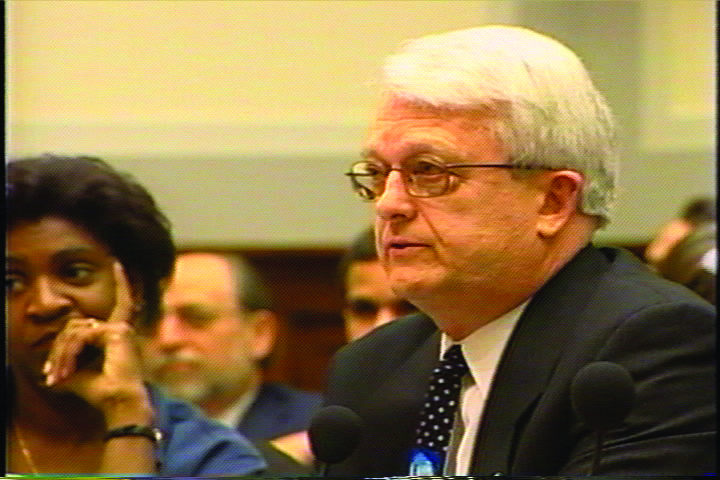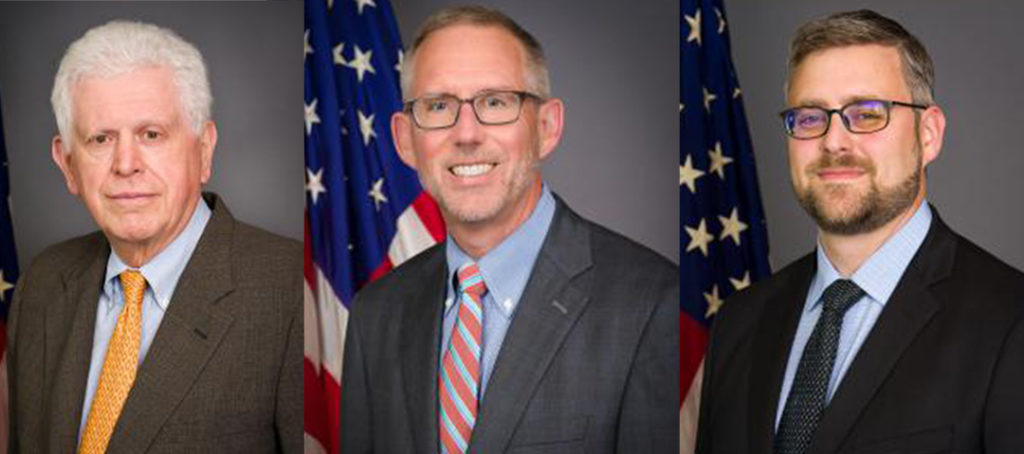Is This Any Way to Run a City’s Schools?
Leaked CTU Proposals Won’t Do Anything to Improve Schools’ Poor Performance
Trump NLRB Targets Forced Dues-Funded Lobbying

Long-Awaited Reversal of Lawless Geary Ruling a ‘Good First Step’
Just over three decades ago, the U.S. Supreme Court confirmed in Beck v. Communications Workers of America, a case argued and won by National Right to Work Legal Defense Foundation attorneys, that forced dues-paying private-sector workers who never join or resign from the union have certain rights.
In particular, such independent-minded workers have the right under federal law to pay a forced, but reduced, union “agency” fee rather than full forced dues in order to keep their jobs.
(Of course, in Right to Work states, 21 in number at the time Beck was decided in 1988, with six additions since then raising the total to 27, unionized employees who choose not to become union members may not be fired, period, for refusal to pay dues or fees to Big Labor.)
Moreover, stated Beck, objecting workers’ forced fees may not be spent on lobbying unless that lobbying is somehow an integral part of negotiations between union officials and members.
Obama NLRB Effectively Gave Big Labor a Green Light to Ignore Beck
But seven years ago, Barack Obama’s National Labor Relations Board (NLRB) gave union bosses a green light to force nonmembers who object to the use of their “agency” fees for anything other than bargaining to pay for virtually all, if not all, Big Labor lobbying.
Effectively ignoring Beck, the Obama NLRB contended in Geary that it’s okay for union chiefs to force objecting nonmembers to subsidize union lobbying activity if it “may ultimately inure to the benefit” of the employees under the union’s monopoly-bargaining control.
National Right to Work Committee President Mark Mix explained that, in practice, this was no limitation at all:
“Big Labor always claims its lobbying and electioneering schemes ‘ultimately inure to the benefit’ of unionized workers. Consequently, if Geary had stood, Beck protections against forced dues for union lobbying would have been gutted.”
In 2014, the Supreme Court’s unanimous Noel Canning decision invalidated Barack Obama’s putative “recess” appointments of two of the three NLRB members who had signed on to the Geary decision, on the grounds that the Senate was not actually in recess when the appointments were made. That means Geary was issued by an illegally constituted Board.
For Years, NLRB Stonewalled Instead of Fulfilling Its Duty to Reconsider Geary
But for years after Noel Canning came down the NLRB stonewalled instead of fulfilling its legal duty to reconsider Geary.

Finally, this January, Right to Work attorneys, acting on behalf of Jeanette Geary, an independent-minded Rhode Island nurse and union nonmember, and a number of her colleagues, filed a court petition seeking an order that the NLRB take action on their case, which was still pending without a valid decision.
‘Court Precedent Compels Holding Lobbying Costs Are Not Chargeable’
The U.S. Court of Appeals for the D.C. Circuit subsequently granted Ms. Geary’s petition, ordering the NLRB to respond by March 4.
Just three days before the deadline, the Board finally acted.
In a sweeping 3-1 decision, the NLRB held that United Nurses and Allied Professional (UNAP) union bosses had unlawfully spent forced union fees forked over by Ms. Geary and other union nonmembers on lobbying activities:
“We believe that relevant Supreme Court and lower court precedent compels holding costs are not chargeable” to union nonmembers who assert their right under Beck to refuse to bankroll Big Labor’s nonbargaining activities, said the Board majority.
The NLRB also held that UNAP officials had violated the law by failing to provide Ms. Geary “with an audit verification letter” in support of their claim that the forced fees they were demanding of her were permissible under Beck.
Just before the NLRB took belated, but positive action in Geary, the Board’s top lawyer, Trump-appointed General Counsel Peter Robb, issued instructions to agency regional directors and other staff about how to ensure employees’ Beck rights are practicable, and not merely theoretical.
Workers Have a Right to Know They Don’t Have to Be Full Union Members
One key point emphasized by Mr. Robb in his memorandum is that, in order for Beck rights to be meaningful, union operatives must be required to let employees know they have a right to “be or remain” nonmembers at the same time as the union “initially seeks” to collect forced dues or fees from the employees.
Moreover, union operatives must also acknowledge, at the time they are making demands that employees bankroll the union, that the employees who are not members have the right not to pay for any and all nonbargaining activities conducted by the union.
“The NLRB reversal of the lawless Geary decision and General Counsel Robb’s memorandum on unions’ duty to notify employees of their rights under Beck and other related High Court decisions together constitute a step in the right direction,” said Right to Work President Mix.
“But it is a travesty that, more than three decades after Beck established minimal free-speech protections for forced fee-paying private-sector workers, those protections remain so precarious.”
Federal Forced-Dues Repeal Would Furnish Genuine Free-Speech Protection
Mr. Mix continued: “The fact is, as long as federal policy authorizes union officials to extract forced union dues and fees from millions of unwilling employees, the freedom of workers to refuse to bankroll political and ideological causes with which they disagree will be in danger.
“Long experience has shown that no court precedent or regulation will deter unscrupulous union officials from using nonmember workers’ forced fees for politics when they think they can get away with it.
“Fortunately, 27 states now have Right to Work laws on the books prohibiting forced union membership, dues and fees.
“Employees in such states are truly and consistently protected from being forced to finance Big Labor’s favored causes and candidates.
“But it remains Congress’s obligation to crack down on forced-dues lobbying and electioneering and protect the free-speech rights of private-sector employees across the nation.
“And this objective can be accomplished by passage of a national Right to Work law that repeals the handful of provisions in federal labor law under which millions of employees are still being forced to bankroll unions.”
Senate Right to Work Measure Currently Has 20 Cosponsors
This spring, the Right to Work Committee is continuing to work with U.S. Sen. Rand Paul (R-Ky.) to build Capitol Hill support for S.525, federal forced-dues repeal legislation that Mr. Paul introduced in February.
“No citizen,” commented Mr. Mix, “whether he or she is a worker, a small-business owner, a student, a housewife, or a retiree, should ever be ‘compelled’ (to paraphrase Thomas Jefferson) to ‘furnish contributions for the propagation of opinions’ that he or she ‘disbelieves and abhors.’
“Rand Paul’s S.525, also known as the National Right to Work Act, would put a stop to what Jefferson properly called a ‘sinful and tyrannical practice.’ It is currently cosponsored by 20 senators.”
Soon after this Newsletter edition goes to press at the beginning of April, pro-Right to Work U.S. Rep. Joe Wilson is expected to introduce a House companion measure to S.525. [Congressman Joe Wilson (R-SC) has introduced the National Right to Work Act (HR 2571) in the U.S. House. ]
Once federal forced-dues repeal measures are before both the Senate and the House, the Committee will begin mobilizing freedom-loving citizens nationwide to push for committee hearings and floor votes on Right to Work in both chambers of Congress.
(source: May 2019 National Right to Work Newsletter)
If you have questions about whether union officials are violating your rights, contact the Foundation for free help. To take action by supporting The National Right to Work Committee and fueling the fight against Forced Unionism, click here to donate now.

Leaked CTU Proposals Won’t Do Anything to Improve Schools’ Poor Performance

Wherever Big Labor wields the power to collect forced union dues, union bosses funnel a large share of the confiscated money into efforts to elect and reelect business-bashing politicians. Employment growth tends to lag as a consequence.

Members Insist They Keep Pro-Right to Work Campaign Promises